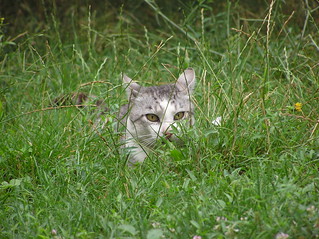A lurker within the massively collaborative Polymath project explains the benefit he received.
The Polymath Project is a collaboration among mathematicians to solve important and difficult mathematical problems by coordinating many mathematicians to communicate with each other. The project uses a blog, to manage conversation, and a wiki to build the solution. Mathematicians of all seniorities take part, the result is truly collaborative, and several papers have been published under the pseudonym D.H.J. Polymath.
A recent paper discussing the solution of the 8th problem to be solved by the Polymath community contains an interesting couple of paragraphs by an American Undergraduate maths student, Andrew Gibson. Andrew and his classmates are not yet experienced enough to contribute to the project, but they gained valuable knowledge and insight through lurking and observing.
As Andrew explains
"Shortly after Zhang announced his result and you (Tao, the coordinator of the Polymath community) proposed the project, my classmates and I began a small, weekly seminar with a professor devoted to studying some of the theory involved (analytic number theory, sieve methods, etc.), albeit on a much more elementary level that was within our reach.
Of course, the majority of the actual proof is still mostly over our heads but at least I feel as if I’ve gained a bird’s-eye-view of the strategy and, probably more importantly, how it fits into the larger field. (For instance, before any of this, I could never have explained the Bombieri/Vinogradov theorem or the Hardy-Littlewood prime tuple conjecture.) So for us the project was a great excuse to enter a new subject and has been immensely educational.
More than that though – reading the posts and following the ‘leader-board’ (blog) felt a lot like an academic spectator sport. It was surreal, a bit like watching a piece of history as it occurred. It made the mathematics feel much more alive and social, rather than just coming from a textbook. I don’t think us undergrads often get the chance to peak behind closed doors and watch professional mathematicians “in the wild” like this so, from a career standpoint, it was illuminating. I get the sense that this is the sort of activity I can look forward to in grad school and as a post-doc doing research (...hopefully). I also suspect that many other students from many other schools have had similar experiences but, like me, chose to stay quiet, as we had nothing to contribute. So, thank you all for organising this project and making it publically available online".
I love the bit about "academic spectator sport" and "watching professional mathematicians in the wild".
This is the benefit of a community deliberately "collaborating out loud" to an audience of more novide members - they get to experience the way the experts think and the way they collaborate on solutions. It's an intense learning experience for the lurker.





No comments:
Post a Comment